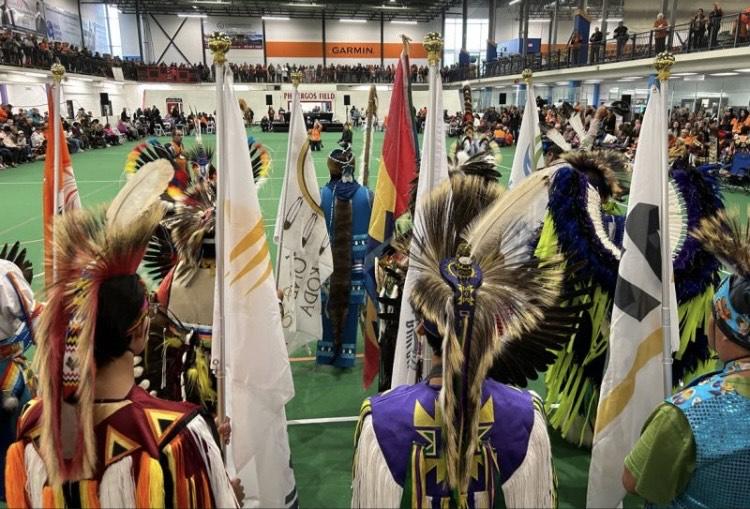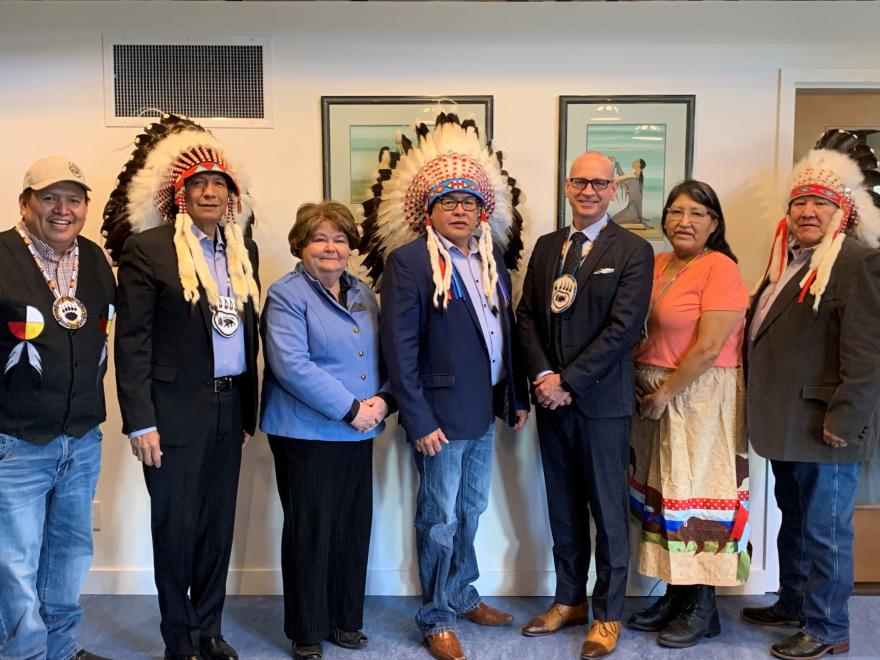The National Day for Truth and Reconciliation
The National Day for Truth and Reconciliation is on September 30 each year. On this day, we recognize the ongoing trauma caused by residential and day schools. We remember those who were lost, survivors and their families.
In observance of the National Day for Truth and Reconciliation, the municipality closes its facilities to provide staff with the opportunity to reflect on the legacy of residential schools and educate themselves.
You can honour the National Day for Truth and Reconciliation by:
- wearing orange on September 30 to raise awareness of the tragic legacy of residential schools and to honour the thousands of survivors
- reading articles and books by Indigenous authors and learn about the experiences of survivors and their families
- reviewing the Truth and Reconciliation Commission (TRC) Calls to Action
- considering the roles you hold at home and work, and how you can contribute to making positive changes that support reconciliation
- attending a community event or take a moment for quiet reflection
- learning more about the land you occupy and the original caretakers of the land

Cochrane marks the third National Day for Truth and Reconciliation on September 30, 2023.
On this day, we recognize the ongoing trauma caused by residential and day schools, and remember those who were lost, Survivors and their families.
In observance, all Town of Cochrane is closing its facilities to provide staff with the opportunity to reflect on the legacy of residential schools and to educate themselves.
Cochrane’s Reconciliation Journey
Cochrane honours the culture, heritage, and contributions of the First Nations, Inuit, and Metis people that have been part of this landscape before colonial settlement occurred.
We stand with the Indigenous community in remembering the past and look forward as we affirm our relationship and partnership in acting upon our local commitment to truth and reconciliation.

Cochrane, Stoney Nakoda Nation, Stoney Tribal Administration participate in CEDI to foster Economic Collaboration
Cochrane has joined with the Stoney Nakoda Peoples and Treaty 7 signatories: Bearspaw First Nation, Chiniki First Nation, Wesley/Goodstoney First Nation, along with Stoney Tribal Administration, to participate in the Community Economic Development Initiative (CEDI). CEDI is a national program delivered jointly by Cando (the Council for the Advancement of Native Development Officers), and the Federation of Canadian Municipalities (FCM).
CEDI seeks to support First Nations and neighboring communities to build respectful and equitable partnerships, and to develop capacity for long-term planning for joint community economic development and land use.
Resources
- These Mountains are Our Sacred Places, The Story of the Stoney People by Chief John Snow
- The book, first issued in 1977, provides a glimpse into the worldview, values, beliefs, and aspirations of the local Nakoda or Stoney people from the First Nations perspective. Available from libraries, booksellers including online retailers.
- The True Spirit and Original Intent of Treaty 7
- A book based on the testimony of over 80 elders from the five First Nations involved in Treaty 7. Available from libraries, booksellers including online retailers.
- University of Alberta library
- Residential Schools Link to resources to learn about the residential school experience.
- Indigenous Canada - University of Alberta
- Indigenous Canada is a 12-lesson course during which students can expect to acquire a basic familiarity with Aboriginal/non-Aboriginal relationships. This course aims to expand the understandings held by many Canadians about these relationships
Support
- National Residential School Crisis Line
- 24-hours: 1-866-925-4419
- Hope for Wellness Chat
- The Hope for Wellness Help Line offers immediate mental health counselling and crisis intervention to all Indigenous peoples across Canada. Available at 1-855-242-3310.

